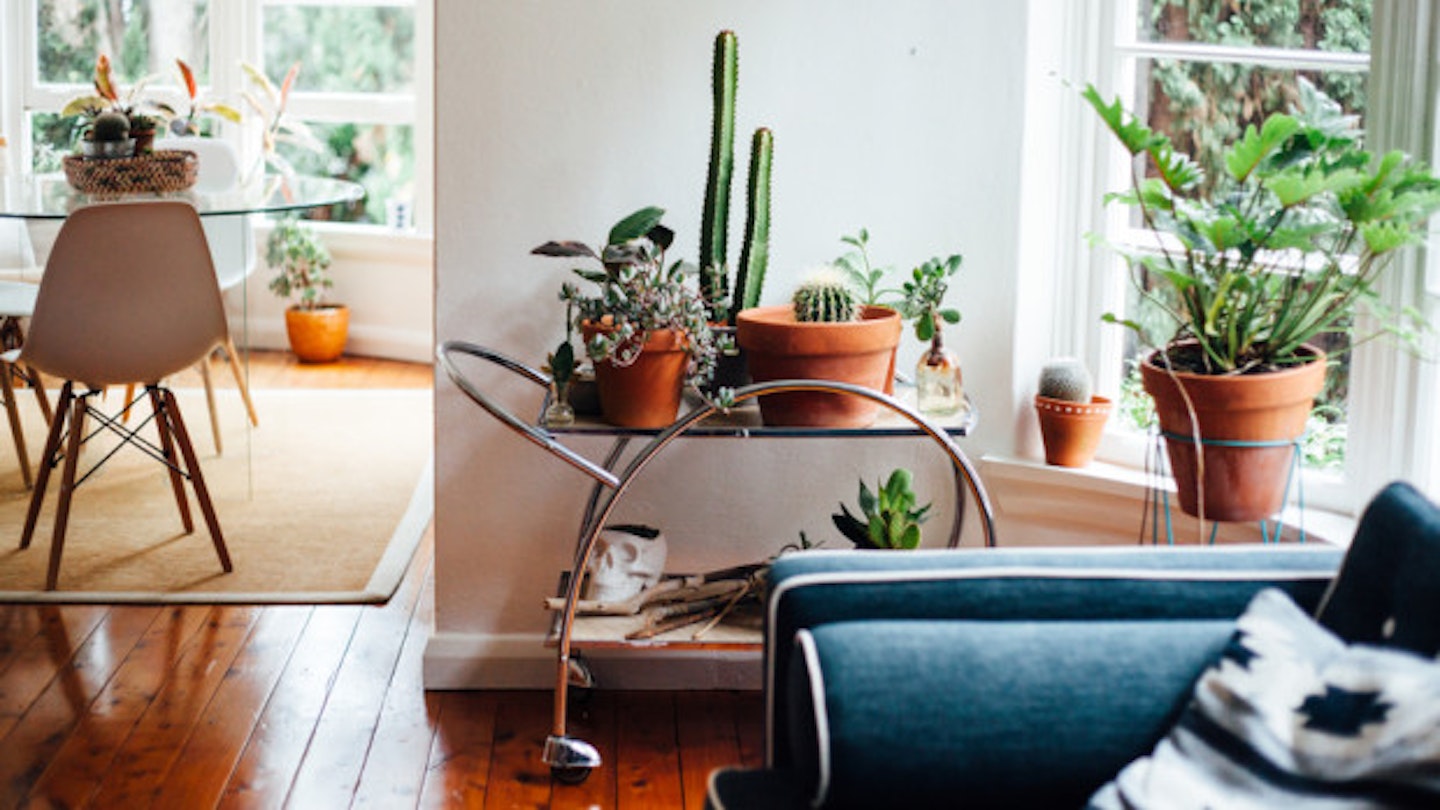If you’re thinking of getting on the property ladder in the UK, we applaud you. Unless you live under a rock (which may have crossed your mind after looking at house prices in London), you obviously know that buying a house in the UK is no mean feat. It's not something many 20-somethings can manage at the moment, but if you can, before embarking on this venture however there are a lot of things you need to know. To make your life easier, we’ve compiled a list of 41 things first time buyers need to know about buying a property in the UK.
1. What to look for when viewing a property
Things like damp, the age of the roof and even which way the house is facing are all imperative things to look for when viewing houses (admit it, you wouldn’t think to ask about the age of the roof). A few other things that could easily slip the net are: -
(a) Is there enough storage space?
(b) Are there enough electrical sockets and what condition are they in?
(c) What’s the plumbing like?
(d) Is the house sound proof?
(e) Do the drains look like they adequately do their job?
Have a look at HomeOwners Alliance and NI Directfor complete guides on what to look for when viewing a property you’re thinking of buying. Trust us, you’ll thank us later.
2. It's best to view as many properties as possible and don’t rush
However much you love a place, you may love the next one even more. If something doesn’t feel right, perhaps it’s just that little bit out of your budget or it’s slightly smaller than what you have in mind, be patient. What you want will come around.
3. You shouldn’t fully trust photos of properties on the internet
You definitely need to view the house before coming to any sort of conclusion about a property. This should be a given but you never know… There are some great photographers that could make Dame Edna look like Cate Blanchett and make you want to put an offer in immediately. However good the property looks on the internet, make sure you visit it - more than once - before setting your heart on it.
4. It may be better to buy “too big” than “too small”
If it’s within your budget, it’s better to go too big than too small. With a property which is too big, you have the option of perhaps splitting it into 2 smaller homes, renting out rooms, or guaranteeing that if and when your family expands, you won’t have to move out and look for a bigger place.
5. The neighbourhood and the people in it
Let’s face it, no real estate agent is going to tell you that the neighbours at the house you are keen on regularly have the police called round due to their loud devil-worshiping get-togethers every Sunday afternoon, which you just happen to get the full view of from your dining room whilst having your Sunday roast with the family. You might want to get your Holmes on and investigate your neighbourhood.
6. The difference between “new build” and “old build”
A “new build” is a newly built property under 10 years of age. Anything over 10 years of age can start to be classified as an “old build”. As new builds tend to be a lot more expensive than old builds, they are considered by many to be overpriced. Old builds however, although perhaps cheaper, could present old-age problems which will need fixing and maintenance and depending on the damage, and may even end up costing as much as if not more than a new build. Nevertheless, Brits (1 out of 4 to be exact) prefer old builds to new builds. Do your research and see which is best for you.
7. The difference between “leasehold” and “freehold”
It’s important to know the difference between these two when looking to buy a house. Freehold is when you own the property outright and leasehold is when you only own it for a set amount of time, anywhere from 40 years to 999 years (depending on how long you wish to live), like a long term rent if you will. With freehold, you own the whole property and the land it’s on, and it’s all in your name. With a leasehold, although cheaper than a freehold, you do not own the property and hence do not have free reign to do as you please to it (contracts vary). There are also different sets of fees with each so you need to be well informed before making your decision. To save yourself time and hassle, make sure you know whether a house you are interested in is freehold or leasehold before further looking into it as sometimes this is not stated clearly in the house ad in bold underline.
8. Estate Agents are your friends
Well, they can be if you play your cards right. You want to get them on your side, see. They don’t work for you, they work for the seller, so if you make sure that you are nice to them, and punctual to your appointments (perhaps even have exclusivity with them), they may be inclined to try to get you a good deal.
9. Your options with a shared ownership scheme
Another funding option is the government’s shared ownership scheme whereby you can buy part of a property from the housing association (or other participators) and then pay rent for the remaining part that you do not owe. This is great if you want to buy a house quick but do not have enough funds to do so immediately as you can slowly at your own pace and depending on income and savings start to buy more of the property until you own it all.
10. A shared equity scheme could be right for you
Shared equity helps you get a loan for your deposit which in turn helps you get a good mortgage deal; the bigger the down payment, the better the deal. With Help to Buy, the government funded shared equity scheme, if you save a 5% deposit, they will loan you the remaining 20%. With the 25% down payment, you should be able to get a mortgage which should ensure you get a good mortgage deal. There is no interest for the first 5 years but there after you’ll have to start paying off the deposit at 1.75 per cent, which will rise with inflation per annum.
11. You could get a first time buyer ISA
With the Help to Buy ISAyou get £50 for every £200 you save for a house deposit. If you save £12,000, you'll get an extra £3,000 on top from the Help to Buy ISA scheme and it can be used on any property up to £450,000 (£250,000 if out of London). Additionally, if you are buying with a partner and neither of you are home owners, you can both get an ISA, doubling the total deposit for the house. Not a bad deal!

11. You can build your own place
This is more common in other parts of the world and is not an easy option but it can be a cost effective one, if you have the guts, time and energy for it. Self Build Portaland Self-Buildhave lots of advice if you quite fancy the idea of building-your-own. Walk-in closet? Don’t mind if we do! The possibilities are endless.
12. Buying at an auction is less hassle
Buying a house at an auction is great for many things if not only to avoid the usual long and torturous buying-a-house process. Sure, you may be buying some poor soul’s repossessed house but you can’t think about that. This is a man-eat-man world. There are some great deals to be had at an auction but there are some pitfalls to watch out for too. Have a look at the BBC and Property Auction Action’s guides to buying a property at an auction.
13. Yo! Homes, homes of the future are (almost) here
You need to know about Yo! Homes! The guy who created Yo! Sushi came up with Yo! Homes, an innovative concept for cheaper property: “The Ultimate Space-Saving Apartment” as he likes to call them. It’s a small place (hence the price) with everything you need in it in space-saving awesomeness. The bed comes out of the ceiling, the dining room table comes out of the floor, and all at an affordable price, starting from around £150,000. These are due to go on the market in the summer of 2016.
14. You can buy something you won’t actually live in
Getting a cheaper place outside of London where property prices are excruciating is an idea and a half. A lot of people are choosing this option. They rent out the cheaper property they bought outside of London and use the rent money to live somewhere they like in London. You'll still live in London if that's what you so wish to do, plus you'll have a property in your name which will only rise in value with house prices as time goes by.
15. You don’t have to buy alone
Have you considered buying a property with a partner, a friend, a business partner or even your parents? It may be worth looking into. It’s quite something to not have to bear the brunt of a mortgage alone, and whether you choose to live in it or rent it out, you can find a way to make it worth the while of everyone involved.
16. How to budget
It can be really hard to budget properly (have you factored in all those coffees and Ubers?). Sure, we all have a rough idea of our outgoings and incomings but when it comes to getting a mortgage, you really need to be precise when budgeting. You need to know if you spend more than you earn and if you can afford the monthly expenditure of a mortgage, month in and month out, for years and years. Try the piggy bank technique or the free budgeting tool Budget Brain to help you best work out your budget.
17. All about surveys
Some lenders ask that you get a survey before providing you with a mortgage. Even if the bank doesn’t request this, it’s still important that you get a survey for your own peace of mind. The survey might show that there is damage to the house. If there is damage that you were not aware of, you can either (a) decide not to buy the house, or (b) negotiate with the seller about the damage, either asking them to reduce the negotiated price or even agree to get the repairs done themselves. The three main kinds of survey reports are a condition report, a HomeBuyer's Report (the most popular survey) and a building survey. Learn more about house surveys here.
18. How to negotiate
You have to learn how to negotiate if you want to buy a house. It’s all about the poker face. You can’t go declaring your love for the place the second you see it otherwise they’re not likely to lower the asking price. Have a look at these top negotiating tactics when it comes to buying a house, which include putting in a very low offer at first (making sure it’s in writing too) and then let the haggling begin.
19. Gazumping is a thing (and a real word)
Gazumping is when your offer has been accepted and then just before all the paperwork is signed, the owner accepts a higher offer from someone else (the equivalent of getting dumped for someone younger). This has been happening for aeons and tends to happen in sellers’ markets where buyers abound. There are some things you can do to avoid being gazumped, i.e. speed up the buying process, make sure that your estate agent has a policy on gazumping, or drafting up a contract upon agreement to avoid such a scenario.
20. The legal steps of buying a property
And there are quite a few so don’t just gloss over this point. You’ll need a solicitor to help you with all the stages of buying a property - pre-contracts, during the exchange of contracts, completion of contracts and even after completion. Check out this guide to conveyancing in case you thought you didn’t have to pay much attention to the legal aspect of buying a property.
21. You'll need a good solicitor
Going on from the previous point, you’ll need a good solicitor who can help you with the whole legal sideof buying a home. You’ll be spending a lot of money and you may be inclined to scrimp and save when it comes to a good solicitor but that would be a mistake. Your money will be well spent on good legal help, someone who is readily available, competent, has a good record and generally knows their stuff. They’ll help you more than you realise.
22. You may need a conveyancer too
If you can get both a solicitor and a conveyancer, then get both, but if you can only get one, the preferred option is get a solicitor; along with the conveyancing, they can also deal with the other legal aspects of buying a house. Have a look at the differences between solicitors and conveyancers here.
23. Your council tax band
Make sure you know what council tax you’ll have to pay on the property you’re interested in by checking your council tax band on this easy tool by gov.uk. They also give you the option to challenge your band if you think it’s wrong.
24. All about interest rates and inflation
Were you paying attention in economics? Perhaps you didn’t need to know about interest rates and inflation then but you certainly need it now if you are to step onto the property ladder via a mortgage. In brief, interest rates are set by each bank but are affected by the ‘base rate’ set by the Bank of England. Inflation is a measurement of how much prices rise over time. Inflation is mainly caused by changes in the economy (supply and demand) and the Bank of England attempts to control this by changing the base rate.

25. How a mortgage works
A mortgage is a loan by a lender in which your house serves as the collateral and you have to pay interest and/or fees to the lender for their service. Sounds simple enough but is anything but; it’s the type of mortgage you get and how you intend to repay the loan that makes all the difference. Check outmortgages explained for first time buyers.
26. The different types of mortgages
Tracker and variable or fixed interest rate are the main kinds of mortgages available but discount mortgages and offset mortgages are popular too.
•Fixed rate mortgages have interest set at the same rate for a set period of time, usually anything from two to five years. This way you know that there won’t be any changes to your mortgage payments, and you’ll be able to budget accordingly.
•In tracker and variable mortgages, the interest rate can change at any time by decisions made by the Bank of England or by the bank giving you the mortgage.
•Discount mortgages are variable mortgages offering a discount of around 1% for an introductory period of time, going back up to normal when that time is up.
•With offset mortgages, you have to have savings. It works by offsetting the amount you have saved at the bank (the same bank that has provided your mortgage) against your mortgage, i.e. if you have an £100,000 mortgage and £20,000 in savings at the same bank, you’d only pay interest on the £80,000 difference of the mortgage.
For the full advantages and disadvantages of each mortgage option, have a look at this complete guide to different types of mortgages.
27. Shopping around for a mortgage is key
Shopping around for a good mortgage is just as important as shopping around for your house. This is a lot of money we’re talking about. There are so many lenders and so many different deals, it’s worth taking a thorough look around. Money Supermarketallows you to compare mortgages online. There are loads to look through so take your time. Many cups of tea will be had glossing over mortgage options.
28. What an AIP is
An AIP (a.k.a. Mortgage in Principle, Decision in Principle or Mortgage Promise) is basically a document from the lender saying that after reviewing your information and performing basic credit checks it will “in principle” be able to give you a mortgage, but they’re not guaranteeing anything. AIPs can leave “footprints” on your credit file and too many could have a negative effect on your general credit scoring. You are not obligated to get an AIP although you might want one to feel a little better off about the likelihood of you getting a mortgage. You can also have a chat with a trustworthy mortgage broker who may be able to give you the same assurance (without leaving footprints).
29. What LTV (Loan-to-value) is
Loan-to-value (LTV) is the amount of your mortgage in relation to how much your property is worth and reflects the percentage of your property that is mortgaged, and your equity (the amount that is yours). For example, if you owe £80,000 but your property is worth £100,000, you have an LTV of 80% and your equity is 20% (£20,000 in this case). Here’s an LTV calculator so you can work out your own LTV when you need to.
30. A guarantor could make your life easier
Not that you need one but if you did happen to have one lying around, life could become a hell of a lot easier for you. If a parent, grandparent or aunt who loves you like her own provides a guarantee for you with either a cash amount or a property as collateral, the likelihood of you getting a mortgage is almost guaranteed (get it?). The guarantor will have to sign documents stating that they will take over the repayments should you not be able to meet them. Quite a feat to get someone to agree to, but if you manage it then good for you!
31. Repayments should be thought about and calculated carefully
Banks perform strict tests (“stress tests” as they call them) when considering you for a mortgage but these are questions that you should have already asked yourself. How much can you afford? Will you always be able to afford the repayments? What about if interest rates rise? What happens if you have children and your expenditures increase considerably (those little mites are expensive)? MoneySavingExpert.com has 8 mortgage calculators for you to check out all aspects and scenarios of repayment.
32. There are LOADS of other costs that come with buying a house
Trust us, there are a lot of costs that you may not have thought about and need to budget for. These can easily range anywhere between £4,000-£15,000 and include: -
•product fees
•admin fees
•completion fees
•booking fees
•variable valuation fees
•local authority service
•surveys
•solicitors’ fees
•home insurance
•moving costs
•stamp duty.
Talking of stamp duty...
33. You have to pay stamp duty
Did you know that you have to pay Stamp Duty Land Tax (SDLT) if you buy land or property over a certain price in England, Wales and Northern Ireland (but not in Scotland; they have their own tax)? The current SDLT threshold for homes is £125,000. For a property worth £200,000, the SDLT amount due would be £1,500. Use the SDLT calculator to work out how much you’ll have to pay.
34. Your credit score
You need to know your credit score to know what kind of mortgage to apply for. If you know your credit score in advance, you have time to correct any discrepancies or inaccuracies, increasing your chances of getting a good mortgage when the time comes. It’s preferable to do this 6 months in advance to give you enough time to sort it out if need be. Experian, Equifax and Call Credit offer free online credit check services.

35. Using a credit card can help your credit score
Doesn't sound logical right? But as long as you pay it back at the end of the month, borrowing on a credit card can be good for your credit rating. Paying off your credit card in full at the end of each month ups your credit score by showing lenders that you are good at paying off your debts - a fine quality they seek in a mortgagee. In order not to go over budget and accidentally overspend on your credit card, perhaps do your regular food shop with your credit card instead of your debit card but make sure you pay it off at the end of the month, showing lenders what a good little bunny you are.
36. If you’re on the the electoral register, you’ll get a better credit score
Lenders use the electoral register to check your name and address so it’s pretty important that you’re registered to vote (they get pretty uppity about not finding you on there). If you’re not registered, then do it now here. If for some reason you can’t register to vote, or don’t want to, you’ll have to provide the Lenders with other forms of proof of address (utility bills, UK driving licence, etc.), but they prefer the electoral register. Just sayin'.
37. You’ll need to give it all up
Information wise, that is. The bank will want to know everything about you and your money; what you earn and what you spend (with proof, of course) even what you spend on clothes, child care and commuting. Be prepared to dig up these costs and provide them to the lender(s).
38. Repossession is a daunting but very possible scenario
Face the facts and learn about repossession. OK, so this is not something you want to dwell on, but it is something you should definitely be familiar with. It’s basically the worst thing that could happen to someone on the property ladder, and it’s better to know what you could be faced with should the bad stuff ever hit the fan at break-neck speed.
39. London is expensive
“You don’t say?” we hear you wail. We know you know but just for emphasis, here’s an example. According to the Land Registry House Price Index, “the average price of property in the capital is £506,724 in comparison with the average for England and Wales of £186,325”. That’s insane considering that the average UK salary is £26,500.
40. You’ll be exhausted
Emotionally and perhaps physically. It’s easy to get dissuaded in all stages of buying a house, from trying to find the perfect house for you, to applying for and finally managing to get a good mortgage, you could be inclined to pack it all in. Stay positive and don’t give up!
41. You’ll feel triumphant!
Once you get to the other side, owning your own house feels pretty darn great!
Like this? You might also be interested in:
Now You Can Buy A House With No Deposit. But There's A Catch...
This article originally appeared on The Debrief.
